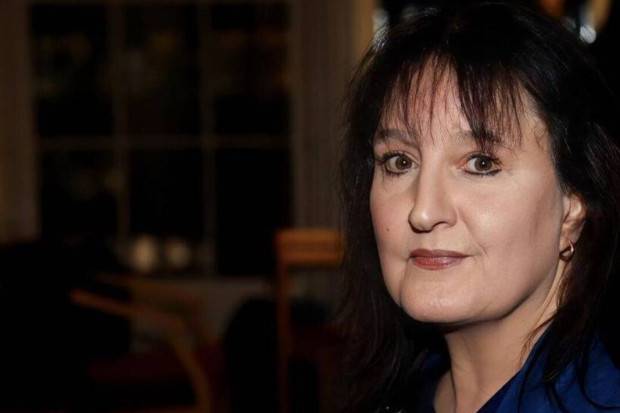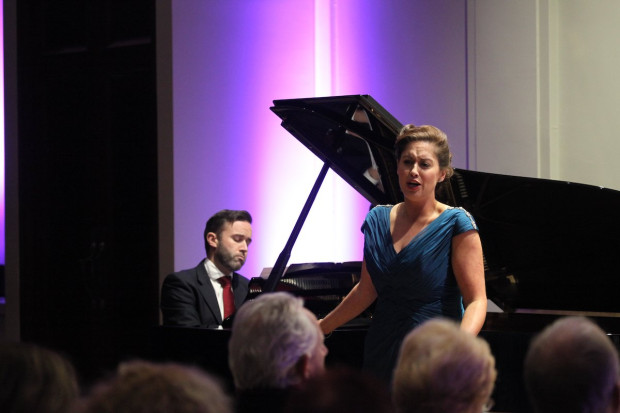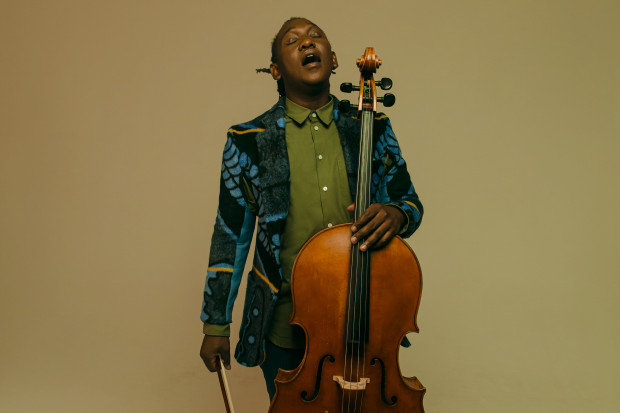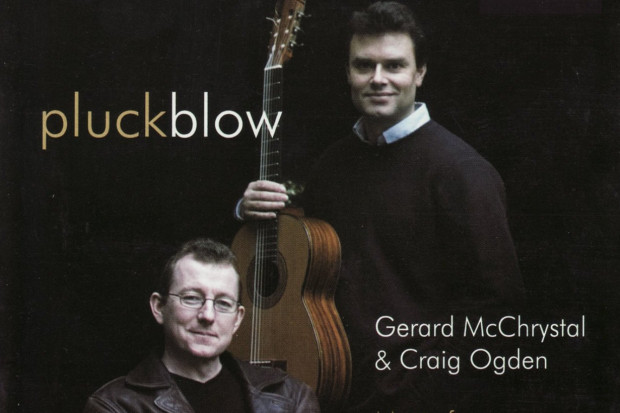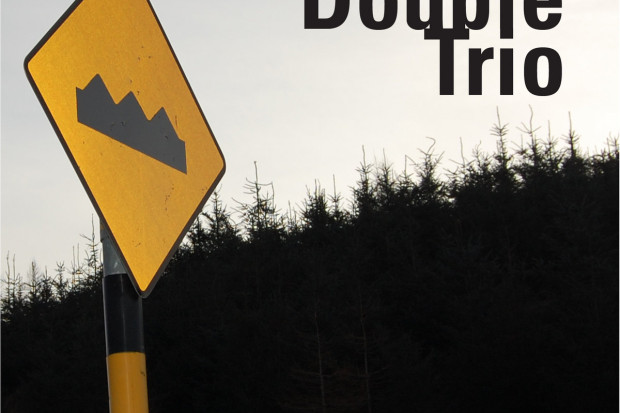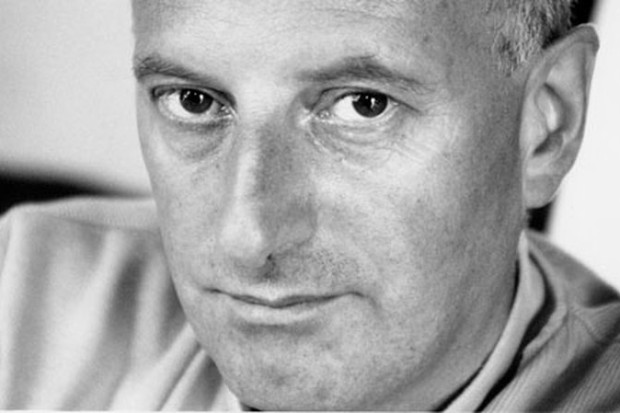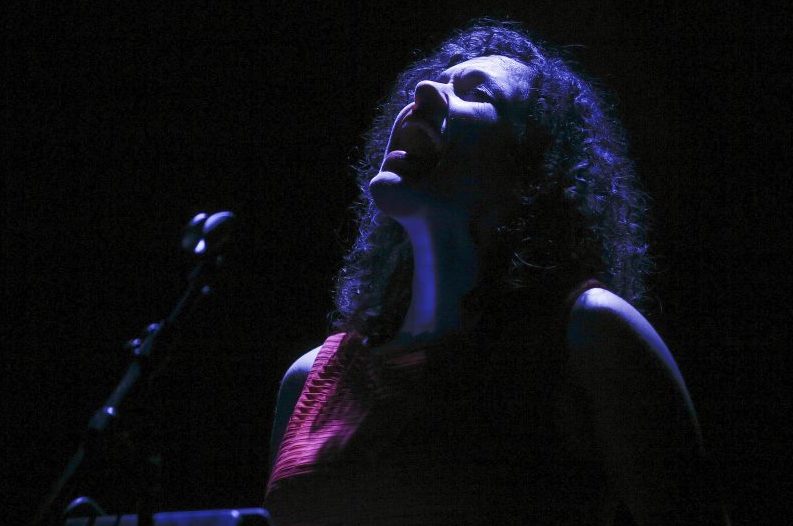
Nora Fischer (Photo: Joey Roberts)
Listen Closer
‘We take our voice for granted’, Irish composer Ian Wilson remarked during his pre-concert talk in Dublin Castle. ‘When you don’t have your voice – for whatever reason – it’s like a bereavement’. This was the fraught topic of the composer’s newly written work, Voces amissae (or ‘Lost voices’) for vocalist and ensemble, performed as part of this year’s Dublin International Chamber Music Festival.
In collaboration with Dutch-Hungarian vocalist Nora Fischer (who has recently struggled with her own vocal obstacles), both artists sought to explore the various manifestations of voicelessness – medical, social, political. This is presented through a series of personal accounts from Ireland and the Netherlands. An ex pop-star with ‘burning-mouth syndrome’, a young mother recovering from a stroke, and an eighteen-year-old forced into a violent marriage – these are but a few painful examples. Inserted between these stories are extracts from Serbian poet Draginja Adamović’s ‘dark’ and ‘surreal’ Pod Staklom Vulkana (‘Under the glass of the volcano’) in their English translation. Wilson feels that her poetry has been overlooked.
Inspired by the ‘small sounds’ picked up through close-miking, Wilson describes this work as ‘a musical investigation into the mechanics of playing pianissimo’. This was an interesting challenge for a chamber work not only totalling 49 minutes in length but containing a percussion section of symphonic proportions. Over a dozen instruments are split on either side of the stage (played by Caitríona Frost and Alex Petcu of the Ficino Ensemble) creating a disorienting stereophonic wash. On a centre riser are the remainder of the group – three violas (Nathan Sherman, Cian Ó Dúill and Ed Creedon) and cello (Killian White). There is a purposeful balancing or equalisation of the vocal line, as Fischer too is seated on the riser – her voice is never revered onstage but exists in constant flux with her fellow instrumentalists. Crucially, the space is fitted with microphones that amplify the sound just enough for us to pick up the timbral ‘minutiae’ of each instrument.
‘What’s happening to me?’
For a large percentage of the performance, Fischer engages in a cardinal sin of healthy vocal technique: whispering. This varies in approach – from entirely unvoiced sounds to a more explorative mezza voce – and everything in-between. The ghostly breathiness of the opening raises hairs – ‘What’s happening to me? How did I get here?’ – Fischer’s nose and lips pressed up against the microphone condenser. This sound world is immediately developed by the ensemble, the violas playing sustained clusters flautando with circular bowing, creating a weak undulation. Hands rubbed around the skin of the bass drum, bowed vibraphone, and the rustling of plastic and wood against the percussion table further manipulates the whisper from its origin source. A unique addition was two mechanical wind machines, although, despite Wilson’s enthusiasm, these were remarkably underused, barely topping and tailing the work. Just as Fischer’s vocality is limited, it is as though the ensemble are disallowed from playing their instruments ‘properly’.
At times they become her, guiding the melodic contours of her line. The cello in particular curates the most intimate relationship with Fischer. They engage in a close symbiosis – the cello’s glissandi become Fischer’s meandering vocal sliding, whilst its grating scratch tones become the depiction of an oxygen-deprived brain – ‘Then I tried to call out, it was like grunting noises.’ In fact, as the work progresses, we wonder if the lost voice is being purposefully taunted – the rattling of metal pieces in cloth evokes the blade which accidentally ‘nicked one of my vocal cords’, whilst the cacophony of ringing dinner bells drowns out Fischer’s final phrase ‘…to feel a sense of joy’. We aren’t sure if they represent celebration, or call for help. Even the acoustic voice is supplanted by the electroacoustic one, as the ensemble turn on two analogue radios to mixed static and chatter – Fischer combats this most unexpectedly by holding her own mobile phone to the microphone, playing recordings of a singing voice (we assume it is hers), happily unencumbered.
In Voces amissae, it is the desperate anticipation of a bleeding gong crash, or one of Fischer’s infamous screams that keeps us nervously attentive. Wilson forces us to reconcile painful futility through a compassionate ear, to listen extra carefully to those voices a little quieter than the rest.
For more on Ian Wilson’s work, visit https://ianwilson2.bandcamp.com.
Subscribe to our newsletter.
Published on 14 June 2023
Thomas Neill is a freelance educator, performer, and writer on music. His focus includes choral leadership, singing facilitation, and music within opera and theatre.










